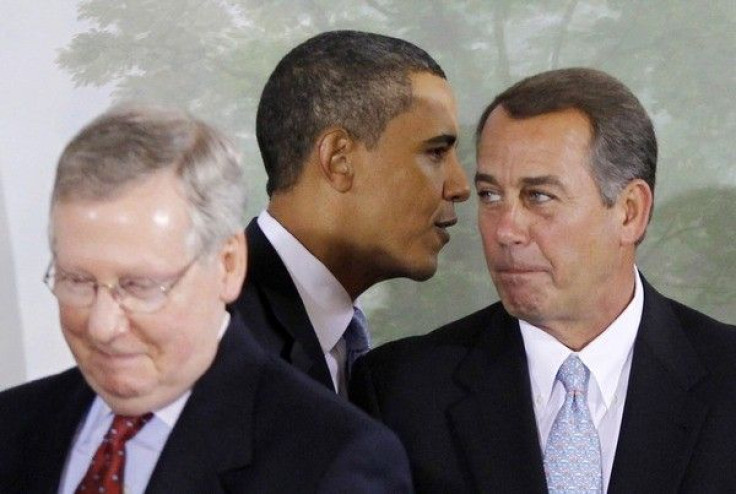Obama meets with GOP leaders for a good start

The American people did not vote for political gridlock in Washington, according to President Barack Obama who today met with Congressional leaders from both parties to discuss what they consider the main components of the national agenda.
Obama called the meeting a good start and said he was encouraged by a broad recognition of the fact that the two parties must put aside their differences to work for the common good of the American people.
At the same time, Obama recognized that bipartisan meetings between leaders such as the one today are often little more than theater for public consumption, where the different sides have their talking points and head out to the microphones after the meeting to try to win the news cycle, and take no actions to address the problems.
He said he hoped that would not be the case today.
Right now we face very serious challenges, and we have an obligation to address them, Obama said.
Republicans retook control of the House of Representatives in November's mid-term elections and gained several seats in the Senate. Rep. John Boehner, R-OH will replace Rep. Nancy Pelosi, D-CA as Speaker of the House in January, while Sen. Harry Reid, D-NV will retain his position as senate Majority Leader and Mitch McConnell, R-KY, continues as Minority Leader.
Obama met with these four leaders.
Boehner said the leaders had a frank conversation
The American people want us to create jobs and cut spending, Boehner said, adding that both sides at the meeting acknowledged this fact.
Republicans have stayed highly critical of Obama's policies from the start. They have lambasted the administration's reform of the nation's healthcare system, claiming it increases the deficit and actually makes American healthcare worse in many ways. They criticize Obama for increasing the deficit through bailouts for the financial and automotive industries and economic stimulus spending. They claim the stimulus is a failure because unemployment remains high.
Senate Republicans have delayed extensions of unemployment insurance, jobs preservation and small business loans legislation, and are currently holding up the nuclear arms reductions treaty Obama negotiated with the Russians.
The Obama administration says its healthcare reform extends coverage to millions of Americans, ends discrimination against people with pre-existing conditions and will, in time, reduce government spending on healthcare by trillions of dollars.
The administration says it inherited a major fiscal crisis from the Bush Administration and that its efforts have kept the U.S. economy from sinking into depression.
The Obama Administration has accused Congressional Republicans of obstructionism and acting out of political partisanship and against the national interests.
One of the main bones of contention between the parties is the question of what part of the Bush-era tax cuts, due to expire at the end of this year, should be extended.
The Obama administration is for extending the tax cuts to earnings under $250,000 a year. The Republicans are for extending the cuts to everyone, including the nation's most wealthy citizens.
Here we disagree, the President said, adding that he thought it unwise and unfair to deprive the public coffers of so much revenue just to give more money to people who do not need it.
The Republicans, on the other hand, say raising taxes in tough economic times on the people who create jobs is courting further fiscal disaster.
The American people expect us to put the national interest ahead of party interest. And, frankly, that's why it's been so distressing for many of us to watch our Democrat friends grope for a clear and unified position on whether or not to raise taxes in the middle of a recession, McConnell said, prior to the meeting. You would think that this issue would be simple and straightforward. The economists say that preventing a tax increase is one of the most important things Congress can do to help the economy.
Obama said that, in an effort to iron out their differences enough to move forward, he was creating a panel, headed by Treasury Secretary Timothy Geithner, to work with both political parties in negotiating the log jam that has developed regarding the tax cuts.
Obama said the sides also discussed the START Treaty. He took a swipe at Senate Republicans by noting that the treaty had been completely vetted for lawmakers for seven months and has wide bipartisan support, especially among military leaders.
Senate Republicans, led by Sen. Jon Kyl, R-AZ, have raised objections to the treaty and appear likely to prevent a vote on it until next year.
© Copyright IBTimes 2024. All rights reserved.











